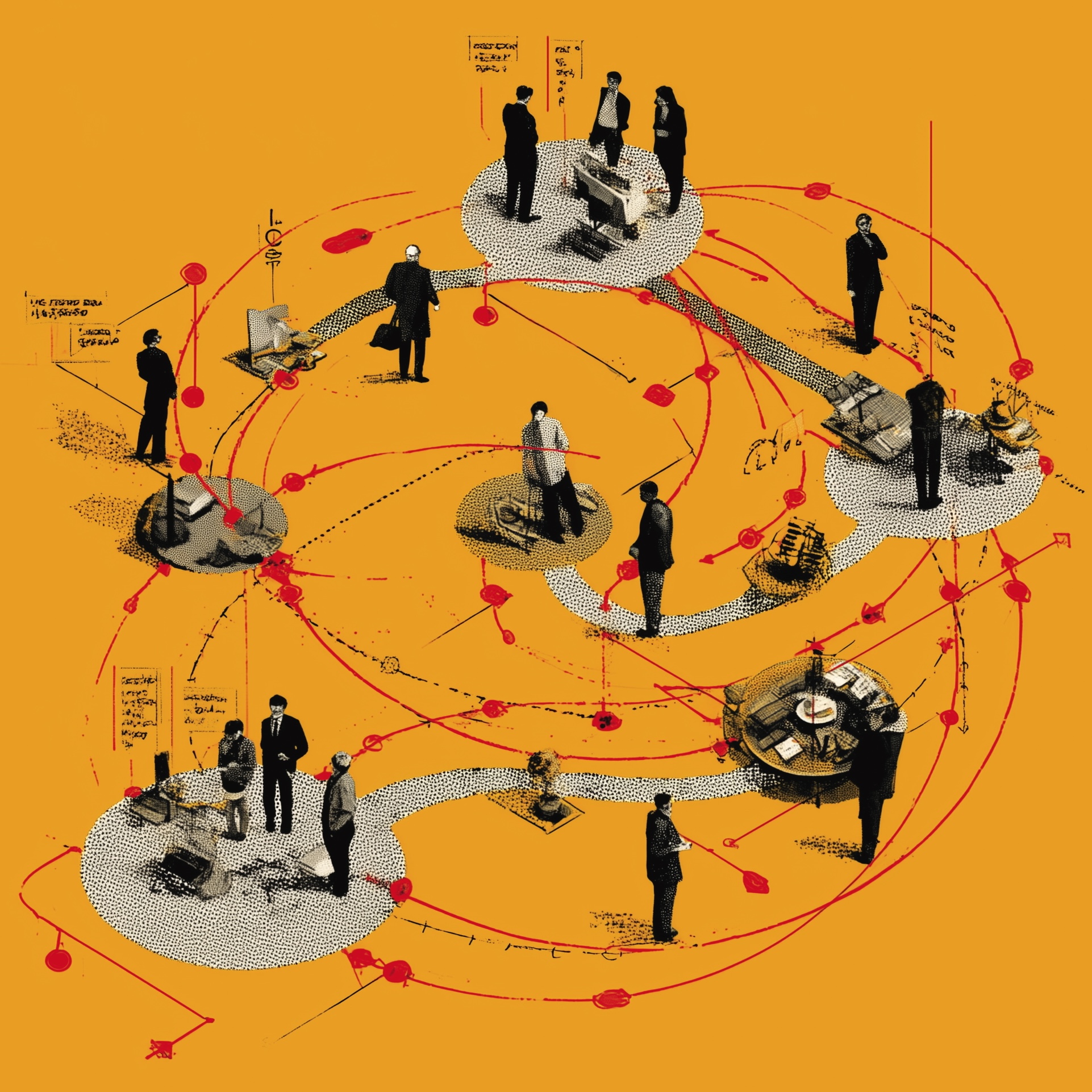Above and beyond: why so many NHS jobs aren’t graded fairly
Agenda for Change, introduced 20 years ago, was supposed to put an end to inconsistency and unfairness in how NHS staff are paid. But staff shortages and tight budgets mean many staff are now graded below the level of the work they’re doing. It’s time to modernise the system, says Rhys McKenzie.

‘Equal pay for work of equal value’. It’s the enduring mantra of Agenda for Change (AfC), the pay structure that was designed to bring NHS terms and conditions into the 21st century. By harmonising pay and conditions for fairly evaluated jobs, AfC would bring an end to pay variation for staff doing the same or similar jobs at different employers.
Yet, in a survey of MiP and UNISON members on AfC, carried out ahead of the 2024 pay round, the second highest priority for members was ensuring staff were in the correct pay band for their role — an issue that AfC was meant to resolve.
Trade unions and health staff won a huge victory when AfC was introduced in 2004. But the framework hasn’t evolved with the jobs people do. Without modernising AfC, staff risk being graded for their jobs as they were twenty years ago, not as they are now.
Mission creep
The root cause of these problems can be traced back to workforce shortages and funding constraints. When overall numbers are too low, staff end up taking on more complex work, often above their AfC grade.
“You have these additional duties creeping onto your job description,” says Sam Crane, MiP national officer for London and the East of England. “Staff portfolios get bigger and bigger, and as the organisation is under pressure, staff are expected to deliver.”
This creep can happen slowly as staffing becomes stretched, or it can happen almost immediately following an organisational change process. Either way, staff end up going far beyond the requirements of their role and it isn’t reflected in their pay.
As the MiP/UNISON survey shows, grading issues exist from the top to the bottom of the system — they aren’t exclusive to a single staff group or AfC pay band.
Healthcare assistants, originally graded at Band 2 on AfC, have steadily been taking on more clinical responsibilities as hospitals struggle with staffing. Supported by UNISON, thousands of healthcare assistants have won the battle to have their jobs ‘rebanded’ — receiving up to five years of back pay in the process.
In the middle of the AfC scale, nurses have also demanded action on grading. UNISON is leading the Nursing Profile review, which aims to update the ‘job matching profiles’ — short summaries of common NHS roles used for comparing with other jobs — for nursing. The previous government even opened a public consultation on removing nurses from AfC altogether, in a desperate bid to appease nurses calling for a grading review. MiP argued that, rather than fragmenting AfC, we should ensure that job descriptions and grades reflect the modern demands of the job for all staff groups.
‘Work doesn’t just disappear’
Grading issues go all the way up to managers and senior leaders. The steady fall in manager numbers relative to other staff since 2010 and the sharp rise in demand for care mean bigger and more complex workloads for today’s managers.
The IPPR’s 2023 report, Finding Hope, found that, compared to 2010, the NHS is “missing” 10,000 managers, and clinical staff are “desperate” for more managers to reduce their non-clinical workloads. “The work these managers were doing doesn’t simply disappear. Someone has to pick up the slack,” says Claire Pullar, MiP’s national officer for Scotland and North East England, “and as clinical numbers have remained relatively steady, more and more of these management tasks are falling on them.”
This squeeze on management is most noticeable following organisational change processes, which generally target managers. Staff given a job in the new structure often find their workload has increased, Claire explains. “They’re doing their own job and delegated parts of their line manager’s job because the manager doesn’t have time to do it. They’ve got posts left unfilled for colleagues who would support them, but these are being held for savings. And before you know it, the employer says, ‘Actually you’re doing very well carrying that extra work, so we’ll let you keep it.’”
When a manager asks to be moved to the correct grade for the work they’re doing, employers will often refuse due to constraints in staffing budgets or the targets set in the organisational change process. Staff doing the same work at one NHS employer will then be graded and paid differently from staff at another.
Promotion can be a hard sell
Exacerbating this variation, in Claire’s experience, is that some employers are willing to offer higher wages to plug gaps in their workforce, or retain existing staff. “It shouldn’t be possible under AfC, but the reality is some parts of the country will pay more for the same work,” she says.
The 2024 report from the NHS Pay Review Body (PRB) highlighted this as an issue leading to an inconsistent application of AfC. This is compounded, the PRB says, by the requirement for staff at Bands 8A and above to wait five years before they become eligible for pay progression — most other bands receive a pay rise after two. With pay bands, especially Bands 7 and 8A, so compressed, it can be a hard sell asking staff to take on more responsibility for so modest a pay increase.
To begin tackling this issue, the PRB recommended introducing an intermediate pay point that staff move to after two years, bringing Bands 8A and above in line with most other AfC grades. It’s a welcome step, which MiP has campaigned for and will support, but more needs to be done to tackle grade variation across the NHS.
Opportunity to modernise
MiP has called for the government to modernise the AfC framework in partnership with unions and employers. This would include ensuring that job descriptions for all roles, reflect the modern demands of the job and that staff are being paid fairly for the work they do.
MiP believes all staff should have a right to request an annual band review, but this requires strengthening the job evaluation capacity in the NHS. Job evaluation work has to be adequately funded and managers must be trained and supported through the evaluation process.
Ensuring promotion and progression is well rewarded will incentivise staff to continue their development and progress up the pay scale. Addressing specific pressure points, such as between Bands 7 and 8A, should be prioritised.
There’s no overnight fix for grading issues in the NHS. But MiP were encouraged by the new health secretary’s commitment to address structural issues within AfC, as recommended by the PRB this year. This work will be conducted through the NHS Staff Council, the body that brings together government, employers and trade unions, with funding underpinning it. It will take time, but it’s a great opportunity to begin modernising AfC. Action on accurate and fair banding for managers will be top of MiP’s agenda.
But to stop these grading issues from coming back in the future, we need to tackle the root cause of ‘grade creep’: the NHS must be able to recruit and retain the workforce it needs to be safely staffed, without needing people to work above their agreed job descriptions. This requires funding and long-term workforce planning — and not just for clinical roles. If the new government are serious about addressing the structural problems in AfC, then they must back that up with action on staffing.
- Rhys McKenzie (R.McKenzie@miphealth.org.uk) is MiP’s communications officer.
Related News
-

NHS job cuts: you’ll never walk alone
As the NHS redundancies in England loom, Rhys McKenzie explains how MiP will back you, and how members supporting each other and acting collectively is the best way to navigate this difficult process.
-

What now? Seven expert takes on the Ten-Year Plan
The government’s Ten-Year Plan for the NHS in England has met with enthusiasm and exasperation in equal measure. We asked seven healthcare experts to give us their considered view on one aspect that interests, excites or annoys them.
-

NHS job cuts: what are your options?
When politicians start reforming the NHS, there is only one certainty: some people will lose their jobs. But what options might be on the table and how does redundancy work? Corrado Valle explains.